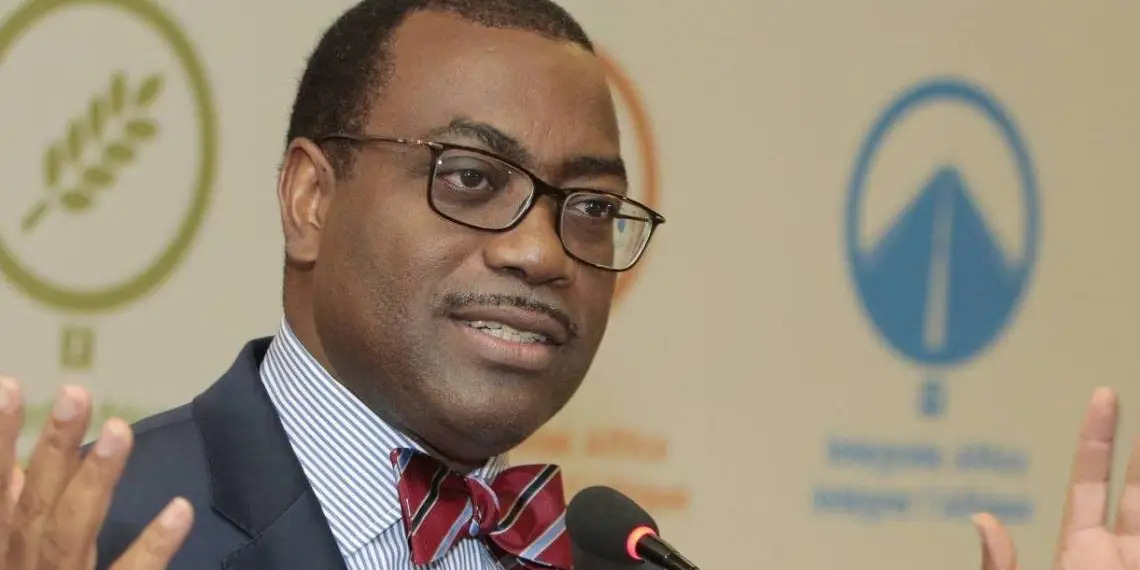Premium Times Nigeria
2022년 5월 21일

(Picture: Official Facebook page of Mr Adesina)
The African Development Bank (AfDB) Group’s board of directors announced that it approved a $1.5 billion facility to help African countries avert a looming food crisis in the continent.
In a statement issued by the bank on Friday, the bank said with the disruption of food supplies arising from the Russia-Ukraine war, Africa now faces a shortage of at least 30 million metric tons of food, especially wheat, maize, and soybeans mostly imported from both countries.
“The African Development Bank’s $1.5 billion African Emergency Food Production Facility is an unprecedented comprehensive initiative to support smallholder farmers in filling the food shortfall,” the bank’s statement read.
It said African farmers urgently need high-quality seeds and inputs before the planting season begins in May to immediately boost food supplies.
According to the statement, the initiative will provide 20 million African smallholder farmers with certified seeds and that it will increase access to agricultural fertilizers and enable them to rapidly produce 38 million tons of food.
“This is a $12 billion increase in food production in just two years,” the bank said.
Akinwumi Adesina, AfDB group president was quoted to have said: “Food aid cannot feed Africa. Africa does not need bowls in hand. Africa needs seeds in the ground, and mechanical harvesters to harvest bountiful food produced locally. Africa will feed itself with pride for there is no dignity in begging for food.”
He said the African Emergency Food Production Facility has benefited from stakeholder consultations, including those with fertilizer producers and separately with African Union agriculture and finance ministers earlier this month.
Mr Adesina explained that the ministers agreed to implement reforms to address the systemic hurdles that prevent modern input markets from performing effectively.
He said the price of wheat has soared in Africa by over 45 per cent since the war in Ukraine began.
“Fertilizer prices have gone up by 300%, and the continent faces a fertilizer shortage of 2 million metric tons. Many African countries have already seen price hikes in bread and other food items. If this deficit is not made up, food production in Africa will decline by at least 20% and the continent could lose over $11 billion in food production value, ”the AfDB president said.
Potentials
The African Development Bank’s $1.5 billion package will lead to the production of 11 million tons of wheat; 18 million tons of maize; 6 million tons of rice; and 2.5 million tons of soybeans, the statement said.
It said the initiative will provide 20 million farmers with certified seeds, fertilizer, and extension services and that it will also support market growth and post-harvest management.
“The African Development Bank will provide fertilizer to smallholder farmers across Africa over the next four farming seasons, using its convening influence with major fertilizer manufacturers, loan guarantees, and other financial instruments,” the AfDB board said.
The statement highlighted that the facility will also create a platform to advocate for critical policy reforms to solve the structural issues that impede farmers from receiving modern inputs.
This, it said, includes strengthening national institutions and overseeing input markets and that the facility has a structure for working with multilateral development partners.
“This will ensure rapid alignment and implementation, enhanced reach, and effective impact. It will increase technical preparedness and responsiveness. In addition, it includes short, medium, and long-term measures to address both the urgent food crisis and the long-term sustainability and resilience of Africa’s food systems,” the bank said.
In her remarks, Beth Dunford, AfDB vice president for Agriculture, Human and Social Development, said: “The Africa Emergency Food Production Facility builds on lessons learned from the African Development Bank’s Feed Africa Response to Covid-19 program.”
The program, she said, has provided a strategic roadmap to support Africa’s agriculture sector and safeguard food security against the pandemic’s impact.
Over the past three years, the AfDB said its Technologies for African Agricultural Transformation initiative has delivered heat-tolerant wheat varieties to 1.8 million farmers in seven countries, increasing wheat production by 2.7 million metric tons worth $840 million.
Long-term sustainability plan
The statement noted that a five-year ramp-up phase will follow the two-year African Emergency Food Production Facility, with the view to build on previous gains and strengthen self-sufficiency in wheat, maize, and other staple crops, as well as expand access to agricultural fertilizers.
It said the five-year phase will deliver seeds and inputs to 40 million farmers under the “Technologies for African Agricultural Transformation program”.
The statement said in April, UN Secretary-General António Guterres, appointed Mr Adesina to a select Steering Committee of the Global Crisis Response Group.
It noted that the U.S. Senate Appropriations Subcommittee on State and Foreign Operations recently invited Mr Adesina to make a presentation about the African Emergency Food Production Facility.
“The Global Alliance for Food Security spearheaded by the Government of Germany provides an excellent forum for the African Emergency Food Program Facility, which is part of a coordinated and collective effort by development partners and countries to accelerate food production in the short term while remaining focused on medium- and longer-term actions to build resilience.” the statement added.